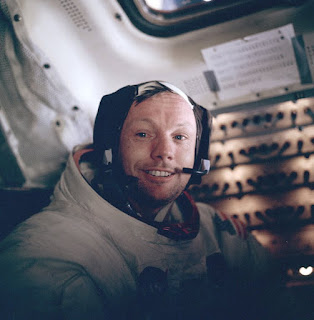You must have experienced this situation one time or the other. You need to drop off two or more folks at different destinations, and you have discussed about it. Then, a short while later, all of you get in the vehicle. As you go half the distance, one of the persons exclaims, “Hey, you took the wrong turn! I was supposed to go over there!!”
“But..” You say, puzzled, “Didn’t we discuss that you would be going here ?”
“Nooo…”, says he (but usually it is a 'she' in such cases)… “That was the ORIGINAL plan, but afterwards I changed my mind and now I want to go there… I thought you knew it, or did I forget to tell?”
This scenario can be just a minor irritation, or it may turn into a full-fledged sledging contest. Is there any solution?
It turns out that the answer lies in the launch sequence of Saturn V, the mighty rocket that launched Apollo spacecraft towards Moon.
The rocket as well as the spacecraft had guidance and navigation maps pre-loaded into their computers. However, just a couple of minutes before the lift-off, there was a final data uplink from launch control center to Saturn V - Apollo, which updated their guidance and navigation systems with latest information.
So, That’s what you do, too. Just before you turn on the ignition key, casually narrate the sequence of stoppages or the route you intend to take, and only after all the participants give you a GO, fire up your F1 engines.
“But..” You say, puzzled, “Didn’t we discuss that you would be going here ?”
“Nooo…”, says he (but usually it is a 'she' in such cases)… “That was the ORIGINAL plan, but afterwards I changed my mind and now I want to go there… I thought you knew it, or did I forget to tell?”
This scenario can be just a minor irritation, or it may turn into a full-fledged sledging contest. Is there any solution?
It turns out that the answer lies in the launch sequence of Saturn V, the mighty rocket that launched Apollo spacecraft towards Moon.
The rocket as well as the spacecraft had guidance and navigation maps pre-loaded into their computers. However, just a couple of minutes before the lift-off, there was a final data uplink from launch control center to Saturn V - Apollo, which updated their guidance and navigation systems with latest information.
So, That’s what you do, too. Just before you turn on the ignition key, casually narrate the sequence of stoppages or the route you intend to take, and only after all the participants give you a GO, fire up your F1 engines.
